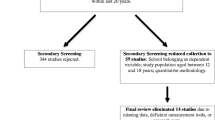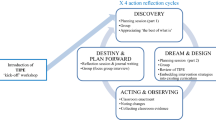Abstract
This paper presents the components influencing English as a Foreign Language (EFL) learning demotivation and resilience. Semi-structured interview data from 23 EFL students and nine teachers were thematically analyzed guided by the Grounded Theory approach after systematic reiterative comparative reviewing. The major demotivators were teachers’ lack of clear delivery for elementary school students, excessive afterschool learning programs at private institutes for junior high school students, and impractical EFL lessons focusing on grammar rather than spoken English for high school students. In order to curb these demotivators and maintain high EFL learning motivation levels, four distinctive components influencing their resilience were identified: social support, emotional regulation, a clear learning goal, and tenacity in EFL learning. This study illustrates that emotional regulation, not negative emotions such as anxiety, is crucial, and students’ clearly stated short-term learning goal is a crucial component in maintaining high academic resilience. Participants cultivated specific components influencing resilience as they advanced academically. Additionally, high-proficiency EFL students exhibited greater tenacity and utilized various coping strategies. We argue for the necessity to refine the sub-constructs of EFL learning demotivation and resilience and recommend the need for a follow-up confirmatory study to prove the conceptual validity of these constructs.
Similar content being viewed by others
Notes
The term “factor” used in this study is an element discovered through quantitative research in the previous studies, and the term “component” is an element discovered through our qualitative research.
The students were named using abbreviations in the present study—advanced level (Elementary = E, Junior high = J, and High school = H); gender (Male = M and Female = F); and proficiency level (Low proficiency = L and High proficiency = H). Each student has a number before the abbreviation to distinguish different students. For instance, student 1, related to elementary school, male, and low proficiency, was coded S1_EML.
The teachers were named using abbreviation as well—teacher number, advanced level, gender.
References
Charmaz, K. (2014). Constructing grounded theory. Thousands Oak, CA: Sage.
Choi, I. C. (2008). The impact of EFL testing on EFL education in Korea. Language Testing, 25(1), 39–62.
Choi, D.-I., & Kim, T.-Y. (2013). Korean middle school students’ English learning motivation and demotivation. English Language & Literature, 39(2), 245–274.
Collie, R. J., Martin, A. J., Malmberg, L. E., Hall, J., & Ginns, P. (2015). Academic buoyancy, student’s achievement, and the linking role of control: A cross-lagged analysis of high school students. British Journal of Educational Psychology, 85(1), 113–130.
Falout, J., Elwood, J., & Hood, M. (2009). Demotivation: Affective states and learning outcomes. System, 37(3), 403–417.
Feng, W., Gu, B., & Cai, Y. (2016). The end of China’s one-child policy. Studies in Family Planning, 47(1), 83–86.
Franklin, T. B., Saab, B. J., & Mansuy, I. M. (2012). Neural mechanisms of stress resilience and vulnerability. Neuron, 75(5), 747–761.
Hamada, Y., & Kito, K. (2008). Demotivation in Japanese high schools. In K. Bradford Watts, T. Muller & M. Swanson (Eds.), JALT 2007 Conference Proceedings (pp. 168–178). Tokyo: JALT.
Herrman, H., Stewart, D. E., Diaz-Granados, N., Berger, E. L., Jackson, B., & Yuen, T. (2011). What is resilience? The Canadian Journal of Psychiatry, 56(5), 258–265.
Hollway, W., & Jefferson, T. (2000). Doing qualitative research differently: Free association, narrative and the interview method. Thousand Oaks, CA: Sage.
Hu, G., & McKay, S. L. (2012). English language education in East Asia: Some recent developments. Journal of Multilingual and Multicultural Development, 33(4), 345–362.
Jung, Y. E., Min, J. A., Shin, A. Y., Han, S. Y., Lee, K. U., Kim, T. S., et al. (2012). The Korean version of the Connor-Davidson resilience scale: An extended validation. Stress and Health, 28(4), 319–326.
Kikuchi, K. (2013). Demotivators in the Japanese EFL context. In M. T. Apple, D. Da Silva & T. Fellner (Eds.), Language learning motivation in Japan (pp. 206–224). Bristol, UK: Multilingual Matters.
Kikuchi, K., & Sakai, H. (2009). Japanese learners’ demotivation to study English: A survey study. JALT Journal, 31(2), 183–204.
Kim, K. (2009). Demotivating factors in secondary English education. English Teaching, 64(4), 249–267.
Kim, T.-Y. (2010). Ideal L2 self and sensitization in L2 learning motivation: A case study of two korean ESL students. Korean Journal of English Language and Linguistics, 10(2), 321–351.
Kim, T.-Y. (2011). Korean elementary school students’ English learning demotivation: A comparative survey study. Asia Pacific Education Review, 12(1), 1–11.
Kim, T.-Y. (2012). An analysis of Korean elementary and secondary school students’ English learning motivation and their L2 selves: A qualitative interview approach. Korean Journal of English Language and Linguistics, 12(1), 67–99.
Kim, T.-Y., & Kim, Y.-K. (2017). The impact of resilience on L2 learners’ motivated behaviour and proficiency in L2 learning. Educational Studies, 43(1), 1–15.
Kim, T-Y., Kim, Y., & Kim, J-Y. (2017). Structural relationship between L2 learning (de)motivation, resilience, and L2 proficiency among Korean college students. The Asia-Pacific Education Researcher, 26(6), 397–406.
Kim, T.-Y., Kim, Y.-K., & Zhang, Q.-M. (2014). Differences in demotivation between Chinese and Korean English teachers: A mixed-methods study. The Asia-Pacific Education Researcher, 23(2), 299–310.
Kim, T.-Y., & Lee, H.-S. (2014). Korean junior high and high school students’ English learning motivation, demotivation, resilience, and English proficiency. The Journal of Foreign Studies, 29(3), 11–41.
Leondari, A., Syngollitou, E., & Kiosseoglou, G. (1998). Academic achievement, motivation and future selves. Educational Studies, 24(2), 153–163.
Luthar, S. S., Cicchetti, D., & Becker, B. (2000). The construct of resilience: A critical evaluation and guidelines for future work. Child Development, 71(3), 543–562.
Martin, A. J., & Marsh, H. W. (2008). Academic buoyancy: Towards an understanding of students’ everyday academic resilience. Journal of School Psychology, 46(1), 53–83.
Masten, A. S., Cutuli, J. J., Herbers, J. E., & Reed, M. G. J. (2009). Resilience in development. In S. J. Lopez & C. R. Snyder (Eds.), Oxford handbook of positive psychology (2nd ed.) (pp. 117–131). New York: Oxford University Press.
Morrison, G. M., & Allen, M. R. (2007). Promoting student resilience in school contexts. Theory into Practice, 46(2), 162–169.
Olsson, C. A., Bond, L., Burns, J. M., Vella-Brodrick, D. A., & Sawyer, S. M. (2003). Adolescent resilience: A concept analysis. Journal of Adolescence, 26(1), 1–11.
Plunkett, S. W., Henry, C. S., Houltberg, B. J., Sands, T., & Abarca-Mortensen, S. (2008). Academic support by significant others and educational resilience in Mexican-origin ninth grade students from intact families. The Journal of Early Adolescence, 28(3), 333–355.
Seidman, I. (2013). Interviewing as qualitative research: A guide for researchers in education and the social sciences. New York: Teachers College Press.
Shin, W.-Y., Kim, M.-G., & Kim, J.-H. (2009). Developing measures of resilience for Korean adolescents and testing cross, convergent, and discriminant validity. Studies on Korean Youth, 20(4), 105–131.
Strauss, A., & Corbin, J. (1998). Basics of qualitative research: Techniques and procedures for developing grounded theory (2nd ed.). Thousand Oaks, CA: Sage.
Zeng, K. (1995). Japan’s dragon gate: The effects of university entrance examinations on the educational system and students. Compare, 25, 59–83.
Author information
Authors and Affiliations
Corresponding author
Electronic Supplementary Material
Below is the link to the electronic supplementary material.
Appendix
Appendix
Rights and permissions
About this article
Cite this article
Kim, TY., Kim, Y. & Kim, JY. A Qualitative Inquiry on EFL Learning Demotivation and Resilience: A Study of Primary and Secondary EFL Students in South Korea. Asia-Pacific Edu Res 27, 55–64 (2018). https://doi.org/10.1007/s40299-017-0365-y
Published:
Issue Date:
DOI: https://doi.org/10.1007/s40299-017-0365-y




